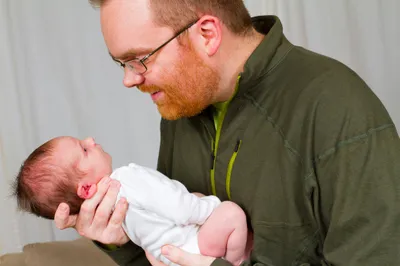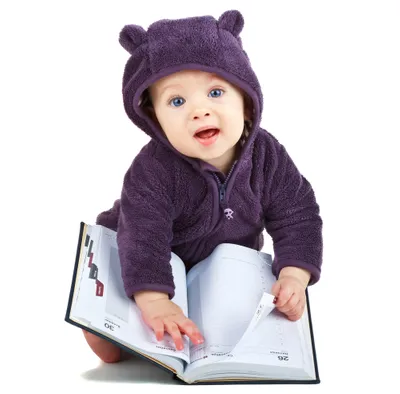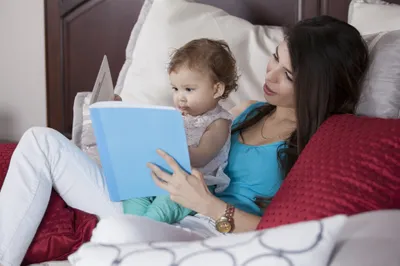A sleeping baby is a beautiful sight to behold. As a parent, your heart will swell with unconditional love as you watch your baby slumbering peacefully.
However, you’ll have heart palpitations when you can’t baby to sleep for the third night in a row due to non-stop crying. What can you do to ensure a restful night for both baby and mom and dad?
Here are ten effective baby napping and sleeping tips…
1. Maintain a Strict Bedtime
Studies consistently show that babies who had a strict nap and bedtime routine went to their cribs with less fuss and fell asleep faster and easier. It’s difficult to have a precise bedtime with a newborn, and trying to enforce a schedule when they’re so young will likely just cause more stress for the parent. Trying to force a schedule is next to impossible with a newborn. It will also probably make you even more tired than you already are, so don’t worry about a strict bedtime right after your child is born.
However, once your baby is 6 to 8 months, you can start to establish an exact time for napping and bedtime to train their little bodies each day by keeping a consistent schedule. Some babies are able to get into this schedule earlier, around 3 months old, but it’s not that common. You could give it a try at that age but don’t push it if it doesn’t work, and wait until your baby is 6 months to try again.
2. Go to Bed When Baby Falls Asleep
Again, this is tough with newborns, but starting at about 6-months, you can establish a system—if baby starts to fall asleep, put him or her to bed and let her drift off on her own. This tactic teaches the baby how to soothe him or herself to sleep—without the need for incessant rocking, swaddling, or 100 renditions of “mamma’s gonna buy you a mockingbird!”
Following this tip will also give you a chance to get some much-needed sleep. Put simply, having a baby and enduring the following months and years is beyond exhausting. This is why it’s important to get the extra sleep whenever you can. Once you put your baby down after him or her begins to fall asleep, turn on the monitor and snuggle into your own bed for a nap. Or, if you’re lucky enough to have a baby that sleeps on a regular schedule and you don’t need the extra sleep, curl up with a book or do something else for yourself. You’ll feel better all around if you fit in this ‘me time’.
3. Set a Sleeping Environment
Make your baby’s room an environment perfect for sleeping and naps, meaning you should always keep the lights dim, use blinds and sound absorption to dull noise, and keep the temperature ideal for sleeping. Basically, his or her bedroom should remain consistent so it’s seen as a place for peaceful slumber.
As fun as it is to set up a nursery – especially for your first child! – it’s important to make sure you create a sleeping environment that’s ideal for your baby. Bedrooms that aren’t set up well can really impact your baby’s sleep schedule and make it more difficult to get a regular schedule in place as they age. Don’t worry, you can still make a cute nursery when adding things that promote sleep. Put some black out shades beneath the sheers and drapes you so carefully picked out. Lights on dimmers allow you to make the room a little brighter to see what you’re doing when you change your baby during the day, while making it dark enough to create a soothing environment around nap and bedtime.
4. Bedrooms Are Not for Play
Taking active games and day activities out of the bedroom establishes the bedroom as a place of sleep, not for games and lively play. Otherwise, baby may get confused and excited right before bedtime, and try to crawl out of his or her crib to play during the night or a nap.
Parents, friends and family love spoiling babies with toys, books, and games, but storing all of these gifts can pose a problem. Usually you end up having to store a lot of toys in your baby’s room, which will tempt your toddler to play during nap and bedtime. In theory, it would be great to be able to store all toys in a separate playroom, but that option isn’t available for everyone. So if you have to store toys in your baby’s room, invest in chests and other organizational items to keep the toys from being on display. This will help keep the room tidy while also ensuring they don’t see a ton of toys when you’re settling them down to sleep.
5. Get Dad On Board
It’s tough work to establish a bedtime and napping routine without help. That’s why it’s important to get your partner involved, set a schedule for napping and bedtime together, and stick to it. For instance, if baby is still nursing multiple times per night, take turns with feedings each before bed and resist again until morning. If you decide to let your baby self-soothe, be consistent because one parent giving in can muck up any progress you’ve made.
Many women are off on maternity leave for 6-12 months after having their baby, but more and more partners are now taking parental leave while the mother goes back to work. In some cases, both parents take time off. Regardless of your situation, you can promote good nap and bedtime habits best when both parents follow the same schedule and structure. If each partner’s parenting style is different, it can really impede on creating good sleeping habits.
6. Adjust Naps as Necessary
A sleep and nap log will help you notice patterns in your baby’s sleep schedule. So track things like the time he or she actually fell asleep, how many times the baby woke up, and if the baby went to his or her crib easily. This will help you establish an ideal bedtime that’s comfortable for everyone. The nap schedule will change as your baby grows, so being flexible and adjusting the nap schedule as needed will help your baby move easily into the new routine.
As hard as it may be at times, once you adjust naptime and get a consistent and effective schedule going, it’s important to stick to those naptimes – especially if your baby or toddler had a really difficult time getting to that point. Nothing’s worse than visiting family for a few days and having that hard-earned schedule go down the drain. Luckily, there are a lot of portable cribs on the market that you can easily take with you if you’re going to be away on a trip or visiting with family.
7. Create a Ritual around Bedtime & Naps
It won’t take too long to establish a bedtime and napping ritual with your baby—as long as you stay consistent. For instance, 15 minutes prior to bedtime or naps perform a quiet, soothing ritual such as reading or singing with no outside stimulation (i.e., noise, pets, or games). Research has shown that stimulating your baby before bed or naptime can prevent babies from falling asleep. Babies love the attention and silly games we play with them, and doing this right before they should go to sleep will only result in a disrupted sleep schedule for both you and baby.
Like adults who love a good soak in the bathtub, many babies find bath time very soothing and relaxing. If you’ve had difficulty getting your baby to sleep at night, try changing your ritual to incorporate a bath. It’s best if you can dim the lights while you bathe your baby, and using a soft, soothing voice as you talk to him or her can help too.
8. Use a Peaceful Prop
A peaceful prop could be anything that makes your baby calm. The idea is to integrate a favorite stuffed animal or blanket into baby’s bedtime and napping routine so that when they see this item they are aware that it is time for slumber, not play. Keep it hidden or in the crib to avoid using this toy or blanket in daytime activities.
Peaceful props like a favorite blanket or stuffed animal can also really help your baby sleep when they aren’t in their own room. While you might wait a while before going somewhere that requires you and your baby to stay overnight, something as simple as bringing their peaceful prop can help your baby go down for nap or bedtime. The significance of the prop will make them feel more at ease and helps you be consistent even when you aren’t at home. Of course, this doesn’t work for all babies but it’s definitely worth a try.
9. Don’t Stay in the Room
I know it’s tempting to watch your beautiful baby fall asleep. However, your presence is distracting him or her from dozing off. Instead, at each bed or naptime, put your baby down and progressively move out of the room so you’re eventually outside the room and out of view. When your baby falls asleep without you being present, it ensures he or she is not dependent on your physical presence to do so.
If you stay in the room while you’re trying to set a schedule and routine, it could be very difficult for your baby to sleep when you aren’t the one putting them down. And it’s even more difficult to get out of this bad habit, causing a lot of extra stress when someone else is caring for him or her. (Because eventually, you’re going to be comfortable enough to get away with your partner for a night or two!). Something as simple – yet difficult for new parents – like leaving the room can do wonders for setting up an effective nap and bedtime routine.
10. Remain Consistent No Matter What
Though there are a lot of effective baby napping tips previously highlighted in this article, the success or failure comes down to this: consistency. You can try every trick in the book but if you don’t follow the routine or schedule you’ve set, it won’t work. At some point, it will happen—even if you think you have established a solid sleep schedule. Your baby will be sick or crying in the middle of the night and you will go to his or her crib to check. Whatever you do, stay consistent. Check on and soothe your baby, then leave the room and let them fall asleep without you there.
Of course, if your baby is sick and needs help or medication, you obviously throw the routine aside and do so. But if him or her isn’t sick, stick to the routine no matter how hard it is because in the end, not being consistent will cause more damage than giving in “just this once”.












